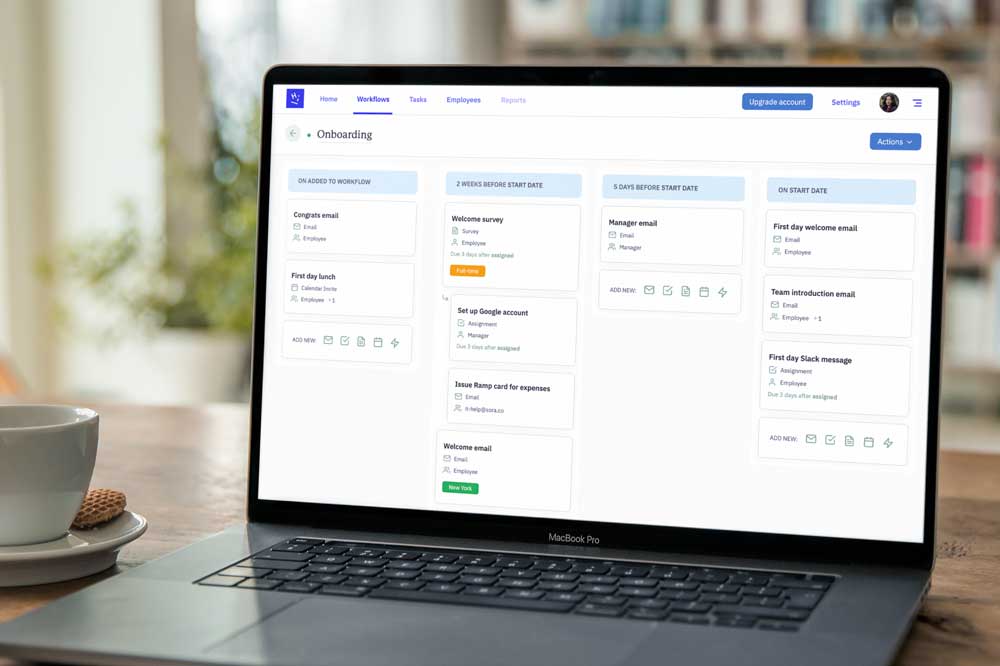
Navya Dev, Head of Strategy at SuperHi.
Case Studies → SuperHi
SuperHi adds clarity, consistency to employee onboarding process
SuperHi is a worldwide community teaching creatives to code. Its courses have been taken by over 10k students in 90+ countries.

Our Role
360º Assessment
Internal Communications
Process Automation
Industry
Education
Headquarters
Worldwide
Managers feel so much more empowered, and I think that’s because our work with Hear Me Out made it clear what they can do to improve how people feel. We’ve seen an incredible level of retention, with people feeling like they’re really resonating with the company. Almost constantly, I’m getting like, “Wow, I feel so heard.”
Challenge
Helping new hires avoid having to “read between the lines”
Navya: We needed to redefine our onboarding. We went from 7–15 people in eight months, and some new hires felt thrown into the deep end, having to read between the lines to figure out expectations.
We also lacked the time, knowledge, and resources to find the best route to fixing things. So often, our ideas were rooted in past experience, and what works for one doesn’t always work for others.
I’d love to figure it all out myself, but that’s just not realistic when I’m also involved in product, operations, and marketing. It would’ve been hard to expect people to be totally honest with me, in a one-on-one setting, asking “What are your grievances with what we’ve done so far?”
Lunch Concept, an ecommerce site created by a SuperHi student.
Solution
Creating “an astounding level of empathy” for managers
Navya: The 360º assessment Hear Me Out conducted was so much more than a report: it was a partnership, and it was truly an astounding level of empathy. We thought onboarding was a very specific aspect of SuperHi, but soon, we were asking, “What are our implicit values? How do they compare to what we explicitly say?”
We introduced Ben to the team, and his experience inspired a sense of reliability and safety. He constantly reinforced that what they shared would be protected. We’re a small team, so every personality stands out, and everyone felt like their perspective was honored. Ben also trained managers on how to communicate about the work, so there was consistent messaging.

Navya and Ben at Ringolevio, a cafe and coworking space in Brooklyn, New York.
Highlighting the need for repetition and clarity
Navya: We learned we needed to reinforce that it’s ok to admit when something’s unclear. Even if we think something is obvious, if it’s confusing, that’s not your fault. So we’ve adopted a tone where, if a deadline can’t be met, or you feel out of your depth, that’s nothing to be ashamed of.
Ben’s work was so inspiring. It felt like the things he was recommending were right in front of us, we just didn’t know how to grasp them. And he was able to articulate the issues so well.
Before, I would’ve been like, “I already said this, so why repeat it?” But he made it clear that it’s not realistic to expect people to feel safe or empowered all of the time. And I learned that when people are sick of hearing something, that’s when the message has finally come across.
Results
“A major catalyst” for wide-ranging changes
Navya: We’ve completely changed the level of transparency. There were so many implicit values we’ve made explicit: how we collaborate, our development process, even how we manage. The work was a major catalyst for change, since onboarding touches almost every aspect of a company.
Take hiring, for example. We’ve always valued progressive hiring, and continue to pay candidates to complete our take-home assignments. But we wouldn’t articulate how to go above and beyond, to see who did it naturally. We learned it’s not always fair to assume candidates can guess what we want.
Since the engagement, we’ve run regular pulse check surveys that have greatly improved our ability to listen to the team. We’re onboarding employees into a new people management tool to formalize 360º feedback and map performance to our OKRs. And Hear Me Out also reinforced things we were doing well already, like quarterly goal-setting workshops, regular retrospectives, and working to foster a tight-knit culture of support and care.
“Hours and hours and hours” of time saved through automation
Navya: It’s a lot of work to onboard someone and remember to send six different emails and complete all the checklists, especially when the managers are also doing their own work. Hear Me Out helped us find and set up the right tools so we could put those things in autodrive. It was all taken care of.
Hours and hours and hours were saved, because we were spending so much time building a custom onboarding for each employee. There’s still some nuance to how each person is onboarded, but having those flows and tools made it so much easier.

Navya saved hours of tedious work by automating common tasks like emails, calendar events, and reminders.
Psychological safety drives “an incredible level of retention”
Navya: The biggest thing for me, personally, was helping us build more psychological safety by being very clear about our values. I’m always asking people, “Do you feel connected to our mission and vision?” And for a while, a lot of them were saying “No, I don’t feel aligned.”
Since the engagement, we’ve seen an incredible level of retention, with people feeling like they’re really resonating with the company. Almost constantly, I’m getting like, “Wow, I feel so heard.”
Finding “the space to imagine how we can improve”
Navya: Managers feel so much more empowered, and I think that’s because our work with Hear Me Out made it clear what they can do to improve how people feel.
Ben had this very fierce belief that we could be doing better. And that gave all of us the space to imagine how we can improve even the smallest details. Since then, I’ve noticed that all of us, especially managers, feel equipped with the language to dive into a problem and feel a sense of ownership.
Right now, we’re rethinking compensation. I put together a survey, and by the end of the week, everyone had submitted feedback. It just goes to show, when you create the arena for people to speak up, it’ll happen. It feels like we’re not just building products together, we’re building a company together. And Hear Me Out inspired that feeling for all of us.



